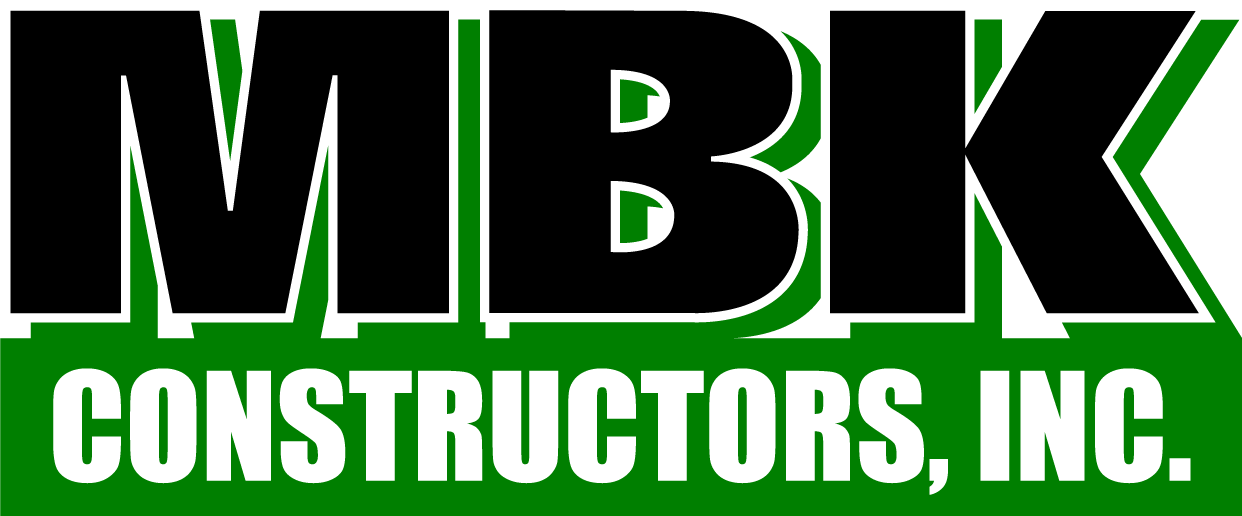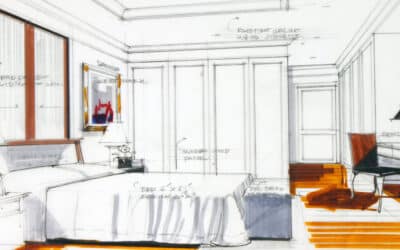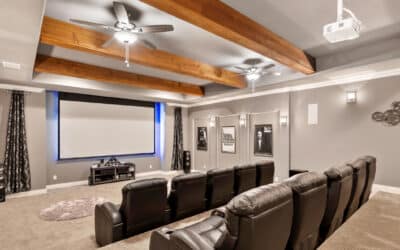In Michigan, the only thing predictable about the weather is that it will be unpredictable. From snowy winters to humid summers, with everything from windstorms to heavy rain in between, your outdoor living space takes a beating all year long. That’s why choosing the right materials for your deck or patio isn’t just a design decision—it’s a long-term investment in durability, safety, and low-maintenance living.
Whether you’re updating an existing space or planning a brand-new build, this guide breaks down the durable patio options for building a backyard that lasts.
The Challenges of Michigan’s Climate
Michigan homeowners face unique weather-related challenges, especially in Ann Arbor and the surrounding communities.
Decks and patios in this region must endure dramatic freeze-thaw cycles that can cause surfaces to crack or shift. Summer brings intense UV exposure and high humidity, which can fade materials and promote mold growth. Winters are long and icy, often resulting in heavy snow buildup and ice dams. And let’s not forget the wind-driven rain and storm debris that often accompany severe weather events in the spring and fall.
These conditions can take a serious toll on your outdoor space in areas like Saline, Ypsilanti, Dexter, and Pittsfield Township, where mature trees and fluctuating weather are common. Using the wrong materials may lead to warping, rotting, mildew, or surface deterioration, compromising the safety and longevity of your deck or patio.
All of this to say, choosing weather-smart, durable patio materials is more than just a wise decision—it’s essential for building a storm-proof outdoor space that can endure Southeast Michigan’s ever-changing climate.
Durable Patio Options That Can Withstand Michigan Weather
If you’re building or revamping a patio in Michigan, consider the three durable materials outlined below.
- Stamped Concrete
Stamped concrete is a popular choice for patios thanks to its versatility, durability, and customizable appearance. It can mimic the look of brick, stone, or wood without the maintenance that those natural materials often require.
Stamped concrete is also resistant to rot and pests, and it can be sealed to protect against moisture and frost. Plus, it makes it easy to shovel snow during winter.
- Concrete Pavers
Concrete pavers are another reliable option. Unlike poured concrete, individual pavers allow for flexibility, making them less likely to crack during freeze-thaw cycles. They also offer excellent drainage, making them a smart choice for areas prone to heavy rain or melting snow.
Further, pavers are easy to repair. If one paver cracks or shifts, it can be replaced without redoing the entire patio. Also, their textured surface provides reliable traction even when wet, and they come in a wide range of styles and finishes to suit nearly any design preference.
- Natural Stone
Natural stone (like bluestone, slate, or granite) offers an organic look and outstanding strength. While it typically comes at a higher price point, it’s a timeless investment as it is inherently weather-resistant and holds up well against Michigan’s four-season weather cycles.
One benefit of natural stone is that it doesn’t fade or deteriorate quickly, which means it maintains its appearance over time with minimal upkeep. When properly sealed, its textured surface is also slip-resistant—an important safety feature in wet or icy conditions. Bonus: Its high-end look can add resale value to your home.
Just be sure to choose stone types that can withstand freezing temperatures, and have them professionally installed with proper drainage and sealing—we’re here to help with that if needed.
Weather-Resistant Decking Options for The Great Lakes State
If a deck is more your style, you’ll want materials that offer both beauty and resilience. Luckily, there are a few reliable weather-resistant options for Michigan decks.
- Composite Decking
Composite decking is a blend of wood fibers and recycled plastic, engineered for longevity and minimal upkeep. It’s become one of the most popular deck materials on the market, and for good reason.
Composite decking is designed to withstand the elements without warping, splintering, or rotting. It resists fading and staining, so it will keep its color and finish season after season. And unlike traditional wood, it doesn’t require sanding or re-staining.
There is a wide range of wood-look colors and finishes available with composite decking, so you can get the natural aesthetic you want, without the upkeep. Be sure to look for brands with solid warranties and anti-slip finishes to maximize performance.
- Pressure-Treated Wood
Pressure-treated lumber is a traditional deck material treated to resist moisture, mold, and insects. It’s an affordable option with solid performance, but it does require regular maintenance (sealing every one to two years).
Over time, pressure-treated wood is prone to fading and splintering, especially when exposed to intense sun or moisture. If not installed correctly, it can also shift or crack during Michigan’s frequent freeze-thaw cycles, which may lead to uneven surfaces or structural issues.
Still, when maintained correctly, pressure-treated wood can last for decades and offer a warm, natural aesthetic.
- PVC Decking
PVC (polyvinyl chloride) is a completely synthetic decking material. It’s lighter than composite and often even more resistant to moisture, mold, and temperature shifts.
PVC decking offers several standout benefits for Michigan homeowners looking for durability and ease of maintenance. It’s 100% waterproof, making it an excellent choice for areas that see frequent rain or snow. The surface resists scratches, stains, and mildew, so it stays looking clean and fresh with minimal upkeep. Even on hot summer days, PVC tends to stay cool underfoot, adding to its comfort.
Overall, it’s a smart pick if you want a deck that’s practically storm-proof right out of the box.
Don’t Forget the Details: Framing, Fasteners, and Finishes
Even the most durable surface material can’t do all the work alone. A truly storm-resistant deck or patio also depends on the components beneath and around it, such as:
- Fasteners: Stainless steel or coated screws are less likely to corrode and loosen in wet weather.
- Drainage systems: Proper grading and drainage are essential to prevent pooling and foundation damage.
- Sealers and coatings: Using the right sealant protects porous materials like concrete and wood from water and UV damage.
At MBK Constructors, we design with longevity in mind, so every layer, down to the fasteners, is chosen to hold up in Michigan’s toughest weather.
Summer is Around The Corner—Now’s The Time to Build a Backyard That Lasts
If you’re dreaming of a backyard oasis that stands up to Michigan’s wild weather, it all starts with choosing the right materials.
At MBK Constructors, we specialize in building outdoor spaces that are as durable as they are beautiful. From stamped concrete patios to low-maintenance composite decks, we help you make the best long-term investment for your home.
Ready to deck out your backyard?
Give us a call: (734) 994-4644



